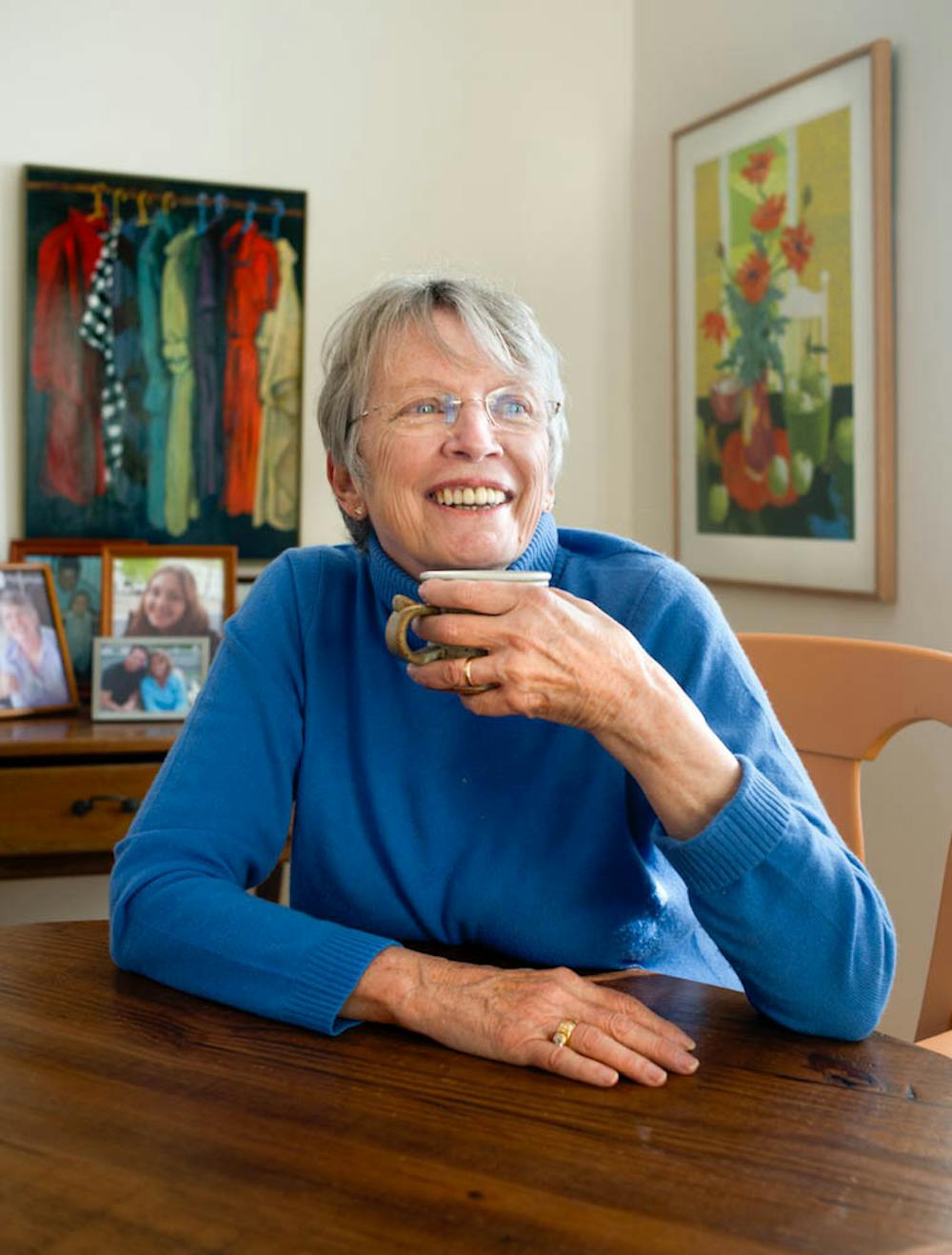Author Lois Lowry spends her days with her Tibetian Terrier, Alfie, looking out over her bird feeder in Felmouth, Maine. Lowry, 80 next month, sits by her laptop, where she still writes children’s novels. After 40 years, Lowry has written a number of notable books including “The Giver” series, “Number the Stars” and “A Summer to Die”. Lowry began her writing career at Brown as part of the class of 1958. She left Brown as a sophomore to get married and later resumed her education at the University of Maine. After the death of her husband Martin six years ago, Lowry moved back to Maine to be closer to her son and grandsons. Lowry still writes children’s novels and will be “as long as her brain holds up.”
Herald: What has changed most over the time you have been writing books?
Lowry: My first book was published in 1977. My style hasn’t changed that much. What has changed, oddly, is that within those 40 years I transferred from a typewriter to a computer. I would keep those early manuscripts in the bottom drawer of my refrigerator, where your mother keeps her lettuce, under the assumption that if my house burned down the refrigerator wouldn’t burn. Now, of course, they live in my computer, and I can make copies of them and email them to people, and I can revise and revise and revise.
Why do you think mature themes are important in children’s novels?
All kids are going to grow up in this world, and that means there will be problems they will have to face. Facing those things through reading and fiction, a safe and comfortable place, is a way of rehearsing for real life. I think it’s a mistake when teachers prevent a book from having a message or try too much to hound in the themes the author deals with. As a reader reads and thinks they are simply enjoying the story, they are placing themselves in the situation and thinking, “What would I do?” It’s a way of preparing for life. When they are out and have to make those choices in real life it will never be easy, but it will be easier if they prepare for it by reading good books.
Why do you choose to write children’s books?
I became aware for the first time how profoundly young readers are affected by books and affected in a time of their lives when they are still practicing who they’re gonna be when they grow up. I wrote my first book, “A Summer to Die.” I knew it was a book for kids — what I hadn’t anticipated was the response I got from readers. Almost immediately I began to get letters from young people who were affected by the book. I now of course hear from kids for assignments. One kid recently sent me an email saying, “Can you please list all of the similes and metaphors in your book?” Those I can chuckle at and write a reply and move on. But I still get these very profound and passionate letters from young readers. One recently from a boy who lives in the south said his father was a very conservative pastor. The boy said, “I am gay and I haven’t come out, and I am scared, and I am lonely. Reading this book about a boy, scared but hoping to change the world, who sets out to unknown places, made me feel differently about myself.” I wrote him back and got a second email from him. All it said was — “I love knowing someone out there cares about me.” This is why I write for kids.
How does “The Giver” series continue to affect readers?
Next year, “The Giver” will be a graphic novel. I’ve had mixed feelings toward that. What I’ve seen of “The Giver” graphic novel is that is sticks entirely to the original and it’s very well done artistically. I think this will bring a whole new and different audience. There are kids who are not really enthused about sitting down with a novel, but they will pick up a graphic novel and be swept up into it. I think it will probably come out 2018.
Have you seen the movie?
I actually went and watched the filming of it in South Africa. I have somewhat mixed feelings about the movie. There are certain aspects of it that they changed that I wish they hadn’t changed. At the same time, I know why they changed them. I asked them to not change the story into a teenage romance, and they were pretty good about not doing that. There were other things I was sorry about, but they did as good of a job as they could. I think it’s unlikely any of the other three books will become movies. Right now, one of my books is being made into an animated film, but I’m not involved in the making of that. It’s a book called “The Willoughbys,” which is a satire. It certainly wouldn’t be out until 2018.
Why do you choose to keep writing?
I can’t imagine my life without it. It’s such an important part of my existence. It’s what I most enjoy.
This interview has been edited for clarity and length.
Correction: A previous version of this article misspelt the title of Lois Lowry's novel "The Willoughbys." The Herald regrets the error.





